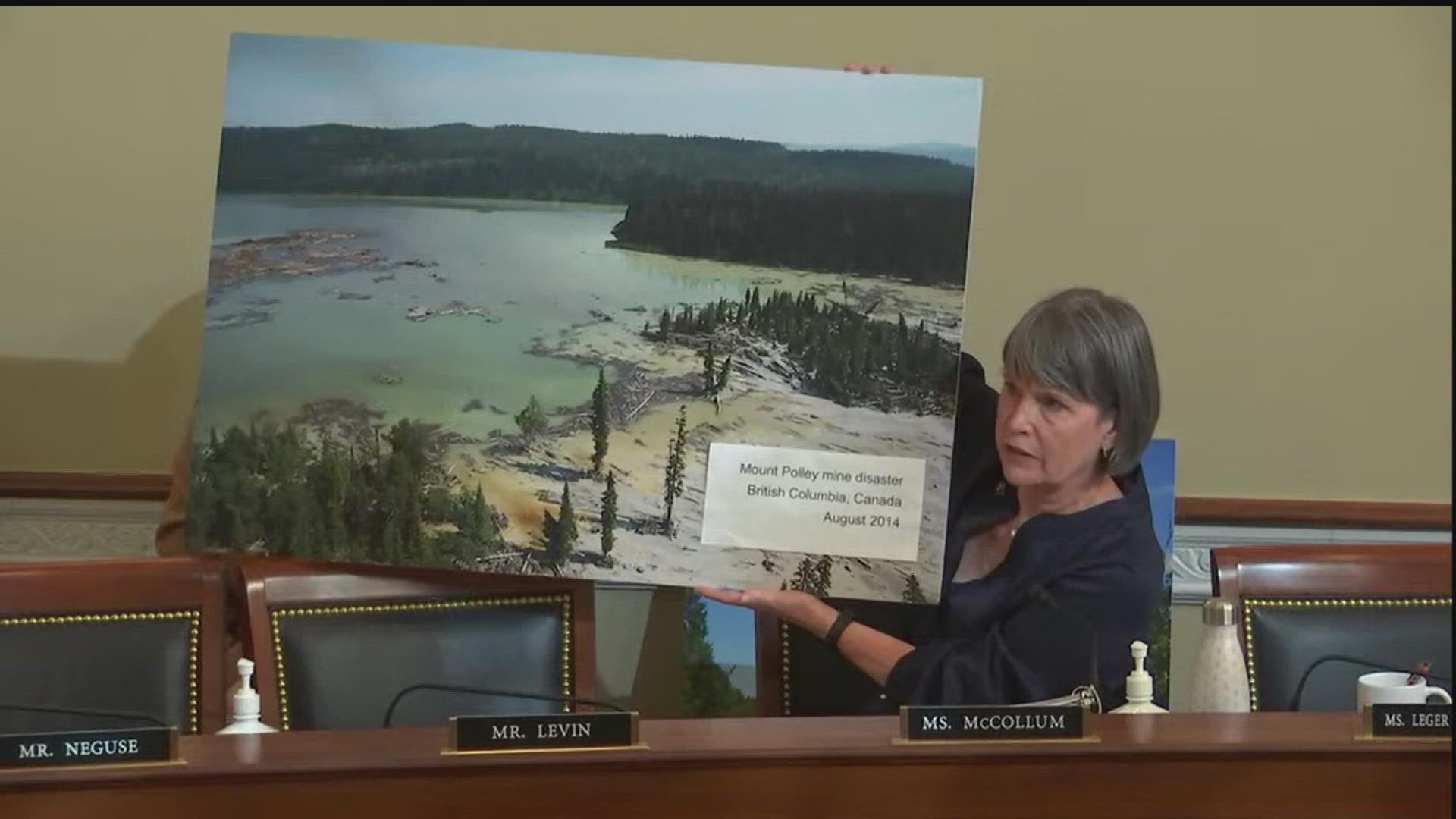MINNEAPOLIS — Congressional Democrats moved a step closer to a permanent ban on copper-nickel mining near the Boundary Waters Canoe Wilderness Area of northern Minnesota.
The U.S. House Natural Resources Wednesday passed Rep. Betty McCollum's legislation, H.R. 2794, which would permanently exclude 235,000 acres of land in the Rainy River Watershed in the Superior National Forest from all mining operations.
If the bill were to win approval of the full House and Senate, and be signed by President Biden, it would deliver a severe blow to the proposed underground Twin Metals copper-nickel mine near Ely, Minnesota. The Biden Administration has already withdrawn national forest land mining leases the Trump Administration granted to Twin Metals.
"Water is a critical natural resource, and it’s not only to be protected for today, but for future generations. Why? Because water itself is life-sustaining," Rep. McCollum, a Democrat who represents the 4th Congressional District centered in St. Paul, told her colleagues during the committee debate.
She warned of the long-term damage that a mining accident would have on a pristine area and major tourist destination. McCollum held a photo of the 2014 Mount Polley Mine tailings dam failure in British Columbia, which send 22 million cubic yards of toxic gold mine waste into surrounding lakes.
The U.S. Forest service in January recommended a 20-year moratorium on sulfide mining, or "mining withdrawal," after finishing an environmental impact assessment that began during the Obama years but was cut short by the Trump Administration.
Republican Congressman Pete Stauber, who represents the area of the planned mine, spent much of the day offering amendments with the goal of stopping the mining ban. None of those amendment succeeded, so the bill in it's current form can be brought up for a vote on the House floor.
"This anti-jobs, anti-mining movement is hell-bent on eliminating our mining industry and robbing Minnesotans of their mineral wealth," Rep. Stauber remarked.
Stauber and other Republicans on the committee said those strategic minerals are vital to our nation's economic security at a time when the demand is for smart technology, electric car batteries and wind turbines. They warned businesses, utilities and consumers will become even more dependent on China if the U.S. doesn't tap into its own resources.
Environmental groups were excited about the development in Washington.
"The Boundary Waters is a national treasure that needs permanent protection from the threat of sulfide-ore copper mining," Becky Rom, the national chairperson of Save the Boundary Waters, said in a press release.
"With the vote today we are one step closer to protecting this priceless Wilderness for future generations."
Rom pushed back against Rep. Stauber's assertion that the bill could be construed to ban all taconite mining in the region.
Julie Padilla, the chief regulatory officer for Twin Metals Minnesota, appeared last month before a congressional subcommittee to argue against the ban.
"If this country wants to produce its own nickel, it has to do it in Minnesota," Padilla told lawmakers.
"We can mine here better than anywhere else in the world. But the United States will not be able to do that under the current regulatory process that is unpredictable, subject to political manipulation with changing rules in each administration, and in conflict with the priorities of our nation."

